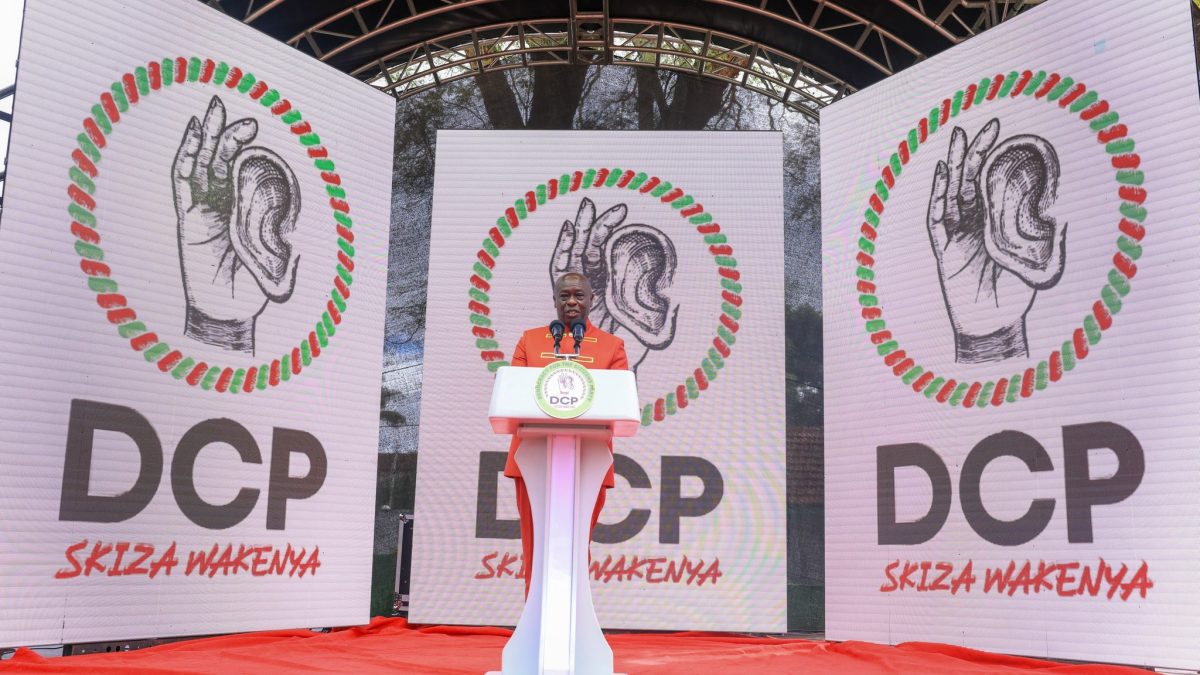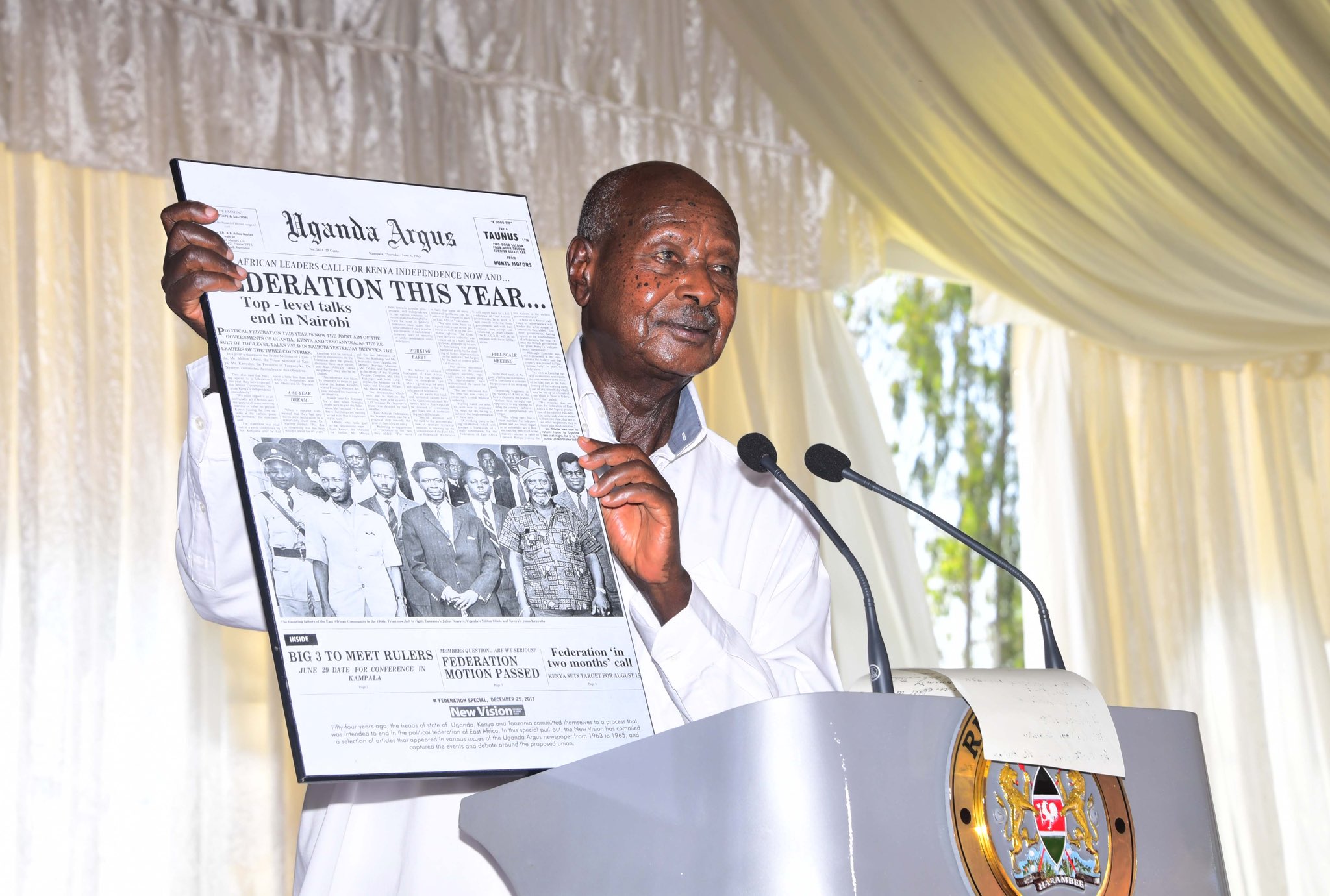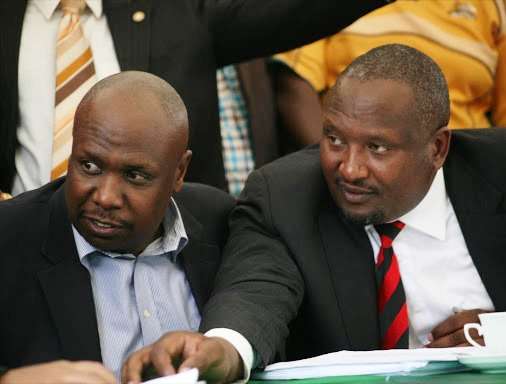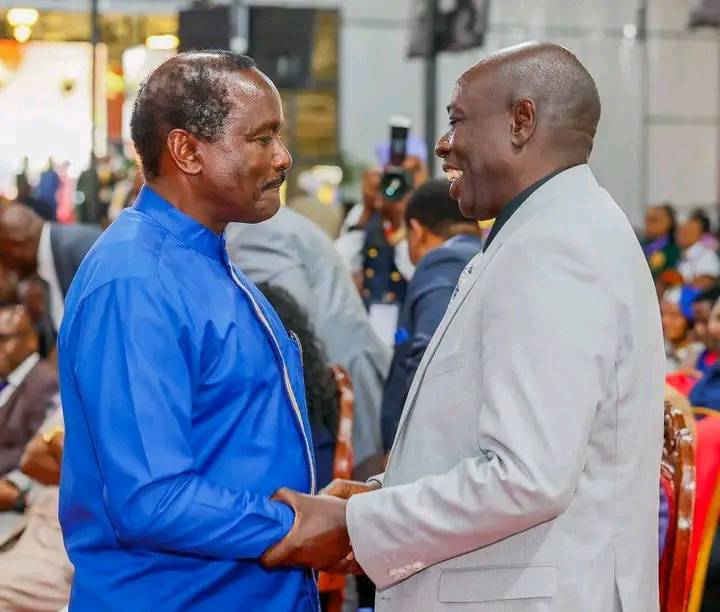The highly publicised unveiling of the Democracy for the Citizens Party (DCP) by former Deputy President Rigathi Gachagua has stirred more confusion than confidence within Kenya’s opposition circles. The event, which was expected to showcase opposition unity and chart a clear path forward, instead highlighted emerging fractures and lukewarm support.
Notably absent from the launch were key opposition figures, including Martha Karua, Kalonzo Musyoka, Eugene Wamalwa, Fred Matiang’i, and Jeremiah Kioni. Their absence has fuelled speculation about a calculated boycott or Gachagua’s failure to extend invitations. Regardless, the appearance suggests a lack of coordination and growing tension within the opposition bloc.
Initially, Gachagua had indicated a willingness to support Kalonzo Musyoka as a joint presidential candidate. However, following the return of Fred Matiang’i to the country, he appeared to change course, briefly endorsing Matiang’i before declaring his own presidential ambitions. He later proposed that the opposition conduct a nomination to select both a presidential candidate and a running mate, but added a contentious condition that Matiang’i should distance himself from the Jubilee Party.
This demand is seen as unrealistic by many political observers, particularly given that former President Uhuru Kenyatta, a staunch backer of Matiang’i, is reportedly preparing a significant relaunch of the Jubilee Party, positioning it as the dominant political vehicle in the region.
Even more telling was the attire of Gachagua’s allies at the launch. Most refrained from donning the party’s colours, opting instead for neutral formal or casual attire. This has been interpreted as a subtle sign of hesitation or internal dissent, possibly influenced by concerns over breaching the Political Parties Act, especially with the Independent Electoral and Boundaries Commission (IEBC) nearing operational readiness.
There were also reports that Gachagua had approached MPs and MCAs, urging them to resign and trigger by-elections as a test of DCP’s popularity, particularly in the Mount Kenya region. That plan now appears unviable, with no elected official willing to risk their seat in what many believe would be a high-stakes gamble with uncertain outcomes.
Further fuelling the controversy is Gachagua’s decision to appoint Cleophas Malala as Deputy Party Leader rather than Secretary-General, a position widely regarded as the most powerful within any political party due to its legal and administrative significance. The Secretary-General role instead went to a relatively unknown close ally, Hesbon Obagra, a move reportedly aimed at keeping tight control of the party’s core functions.
In the end, what was meant to be a show of strength has instead exposed a party and a politician grappling with internal resistance, wavering loyalty, and strategic miscalculations. Whether DCP can evolve into a serious political force or remain a personal vehicle for Gachagua’s ambitions is unclear. For now, the launch has left more questions than answers.





